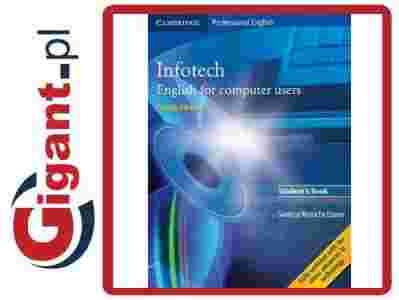Infotech English For Cimputer Users Student S

Aukcja w czasie sprawdzania była zakończona.
Cena kup teraz: 59.99 zł
Użytkownik gigant_pl
numer aukcji: 3870683086
Miejscowość Piaseczno
Wyświetleń: 5
Koniec: 08-02-2014, 18:40
Dodatkowe informacje:
Stan: Nowy
